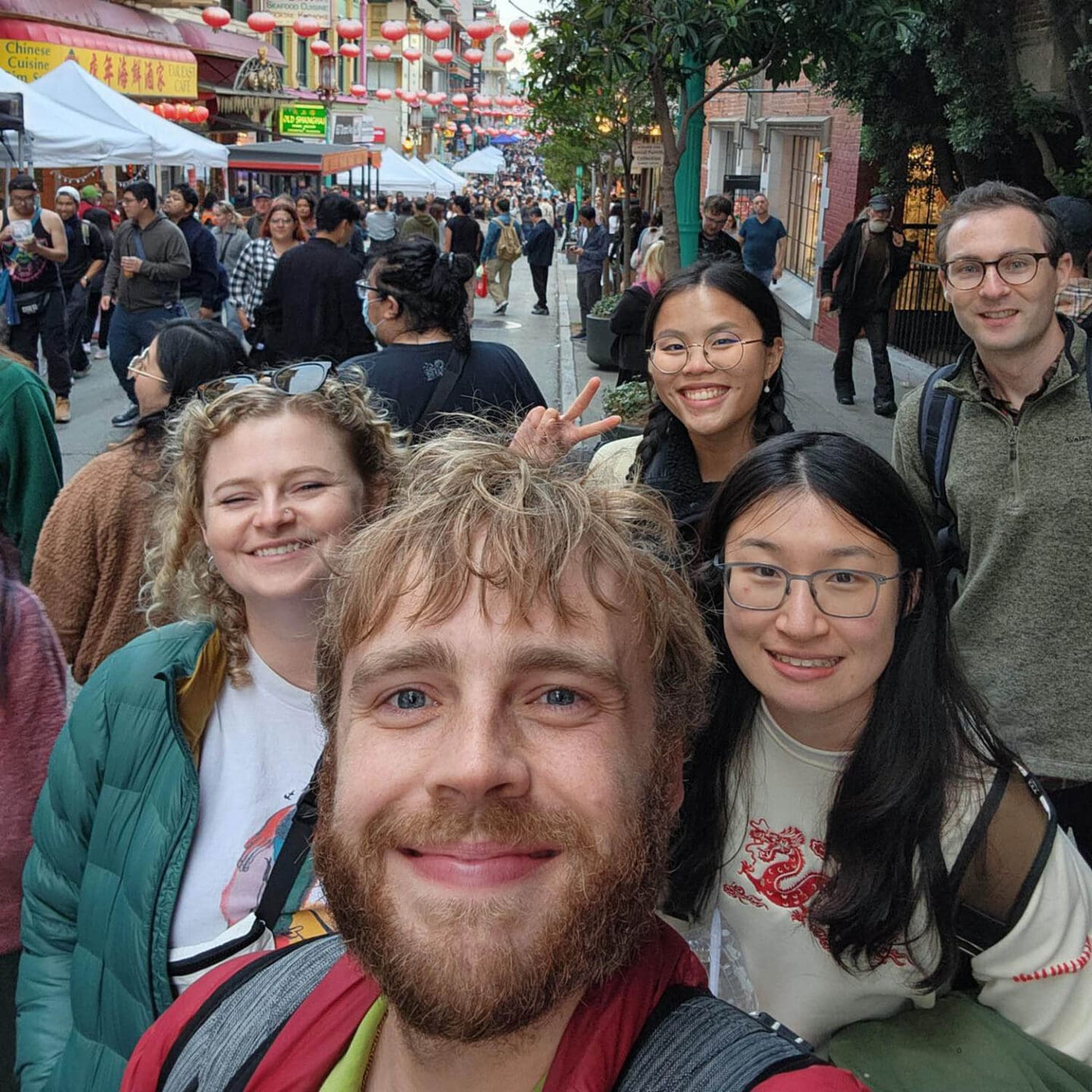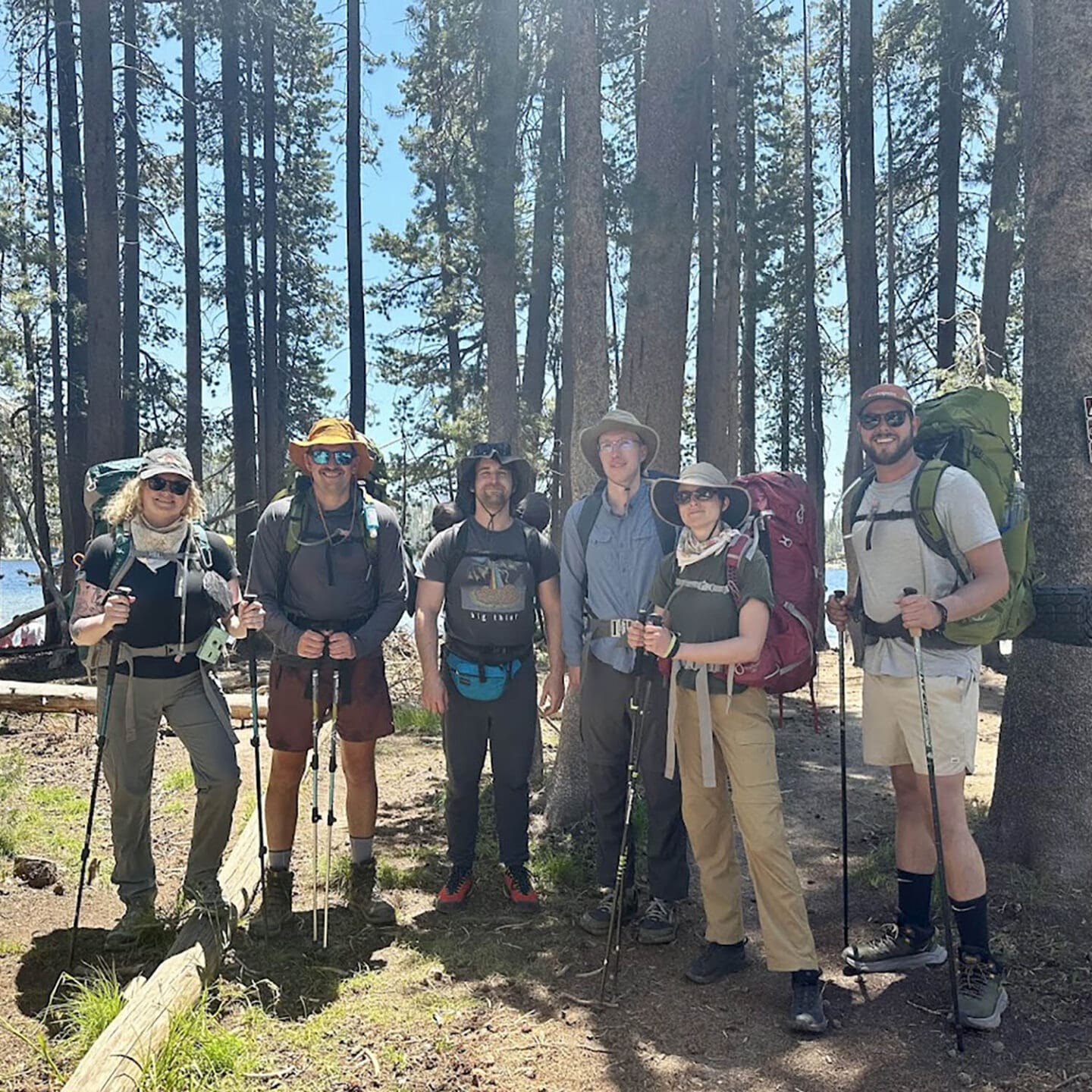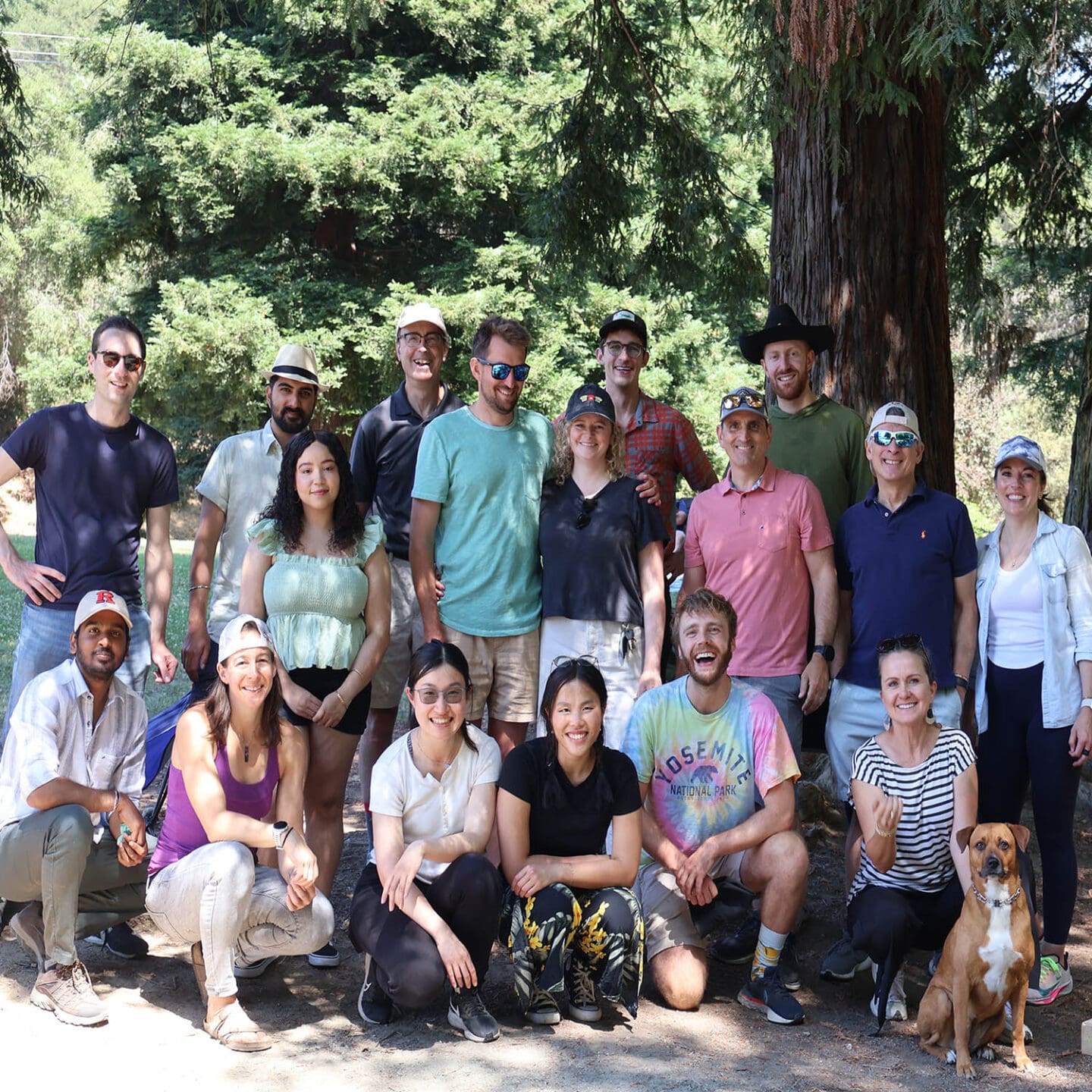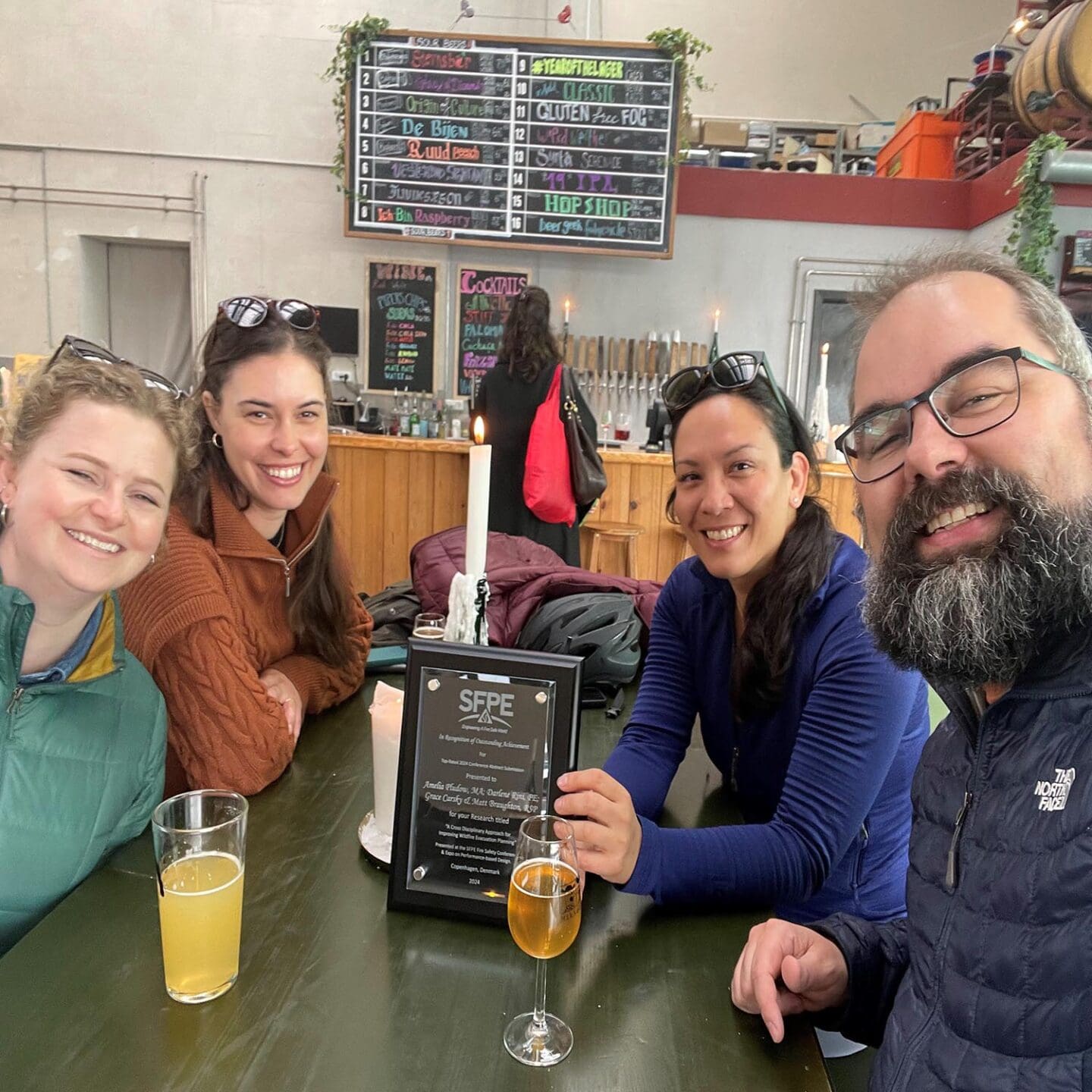“There are lots of ways you can express your interest in transportation without having a degree in the subject.”
We’re an interconnected nationwide team, but we each have our own reasons for being passionate about the work we do. This month, get to know Grace Carsky, planner, in our Oakland office.
What’s your background and how did you become a transportation professional?
You could say I took the scenic route to get to where I am today. I attended the University of British Columbia and received my bachelor’s degree in forest management and a master’s degree in forest biometrics. Like most people, I wanted to do something that would make the world a better place for people, and a career as a professional forester seemed like a way to do that.
While trying to find a job in the forestry industry, I got a temporary job at Kittelson as an administrative assistant to help the Portland office while they were looking for someone more permanent. I had GIS experience from prior research and teaching experience, which was quickly put to use to help with some projects around the firm. That turned into a full-time position as a GIS analyst. Five years later, I’m still here, now as a planner!
Looking back, I’ve always had an interest in transportation. My family used to take a lot of road trips, and I would help my dad plan our driving routes on paper maps. Before I had a car, I would bike to get to friend’s homes, to go shopping, and to get to my job. As a teenager, my friends and I would take BART (our local rail) to get into Berkeley, Oakland, and San Francisco to hang out. When I moved to Vancouver for college, I had a free transit pass as a student and that allowed me to explore every corner of the city. In a way, not having a car gave me much more freedom to get around and discover new places.
Outside of work, you will most likely find me cooking or eating out at new restaurants and bars. Cooking has always been my passion, and I am most comfortable in the kitchen. This year I’ve decided to level it up and I’m starting to develop my own recipes! I also try to spend as much time outside backpacking or camping, especially in quiet, remote areas where I can disconnect from the busy urban life I live day-to-day.


What is most interesting and rewarding in your work?
I always knew I wanted to go into consulting because I find fulfillment in helping other people achieve their goals and, in my mind, that’s what consultants are hired to do. My work is rewarding because I come out of every project feeling like I helped make a difference—for my clients, for stakeholders, and for the community. It’s also so cool to see your work in person. I love being able to point out infrastructure that I helped out with, whether it was doing the feasibility study, helping design the facility, or writing the grant application that resulted in funding for construction.
Are there other work experiences or other life experiences that have helped you to be successful so far in your career?
I have so much gratitude for my grad school supervisor, who really set me up to be successful in my career. She was very intentional in training her students to be competent professionals no matter what our career paths were going to be – academia, government, consulting, or something else. She held weekly lab meetings where we took turns leading meetings and presenting our research so we could practice public speaking and communication. She encouraged us to work with each other to ask questions and troubleshoot projects, something I do every day with my coworkers on a variety of projects. She had me set up biweekly calls with Ministry staff—the people funding my research—where I updated them on the progress of our research and asked questions to make sure my research was meeting their needs and expectations. Everything my supervisor had me do throughout grad school is what I’m doing with my colleagues and clients today. I’m really thankful I was able to get that experience in grad school before coming to Kittelson.


What advice might you give to someone who’s looking to break into transportation planning?
You are probably more qualified to do this job than you would think! A lot of my day-to-day involves looking through data, running analyses, and writing reports—pretty common tasks in any industry. You probably already have some software skill that transportation planners and engineers have. Most people have some level of coding experience, and that can go far in the work we do. More specific to transportation planning and engineering would include experience in ArcPro and CAD software. There are a lot of online tutorials where one could learn the software, but you may also look into classes at a local community college to get more formal training.
As I interview candidates for internships or full-time positions, I’m always impressed by those who have taken other initiatives to get into the industry. I’ve seen plenty of candidates who don’t have a typical background in civil engineering or transportation planning, but they have joined transportation professional organizations to meet other professionals, volunteered with urban planning/transportation non-profits to help the community directly, or keep up with books, podcasts, and/or newsletters to learn about the industry. There are lots of ways you can express your interest in transportation without having a degree in the subject!
Also a reminder that planning and engineering aren’t all we do. We have an incredible team of writers, editors, graphic designers, communication managers, proposal and marketing coordinators, accountants, and more—so whatever your passion is, there is probably something you could be doing in transportation as well!
What do you think is the most exciting development in the transportation industry right now?
I’m really excited to see safety and active transportation prioritized in planning. At least in the work I’m doing, there are a lot of conversations around how we can develop transportation systems so people can travel in any mode they choose, and to make sure that they travel there safely regardless of mode. Even in smaller communities where driving is sometimes the only option, there is consideration for those who may walk or bike for physical activity or for fun. In my short time in the industry, I’ve also seen more community partners join in on these conversations. I’ve been in meetings where I’m not just speaking with planners or engineers, but with public health officials, disability advocates, CBOs, etc. Getting to hear all the different perspectives has been so informative in my projects and encourages me to think more broadly about the work I’m doing.
